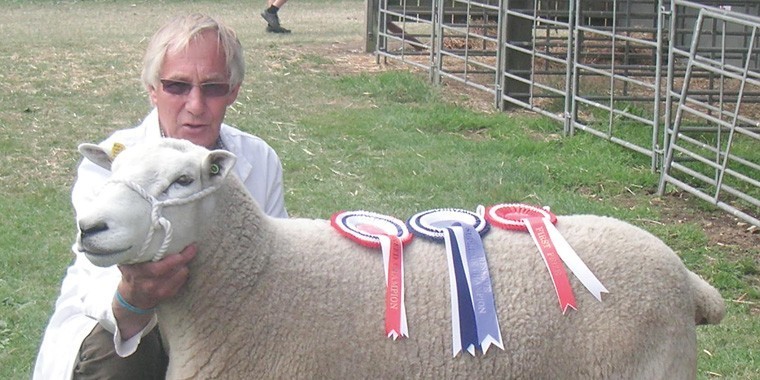“Season of mists and mellow fruitfulness! Close bosom friend of the maturing sun; conspiring with him how to load and bless with fruit the vines that round the thatch eaves run; to bend with apples the moss’d cottage trees, and fill all fruit with ripeness to the core.”
So starts Keats’ poem “Autumn,” and I can certainly appreciate his sentiments. Autumn is a lovely time of year, or at least the type of autumn that most of us have a mental picture of – cool, misty mornings, the grass laden with dew, colourful sunrises, the autumn colours of the trees and warm sunny days.
So far this autumn has all the makings of that sort of autumn. It is a time of year when it is a pleasure to be out, as the sun is rising, doing the rounds of the sheep, contented sheep, heavy with dew and quietly cud ding.
Towards the end of his poem Keats does mention sheep, in the line which reads: “And full-grown lambs bleat loud from hilly bourn,” and the lambs certainly do seem to be well (full) grown this year. Going into the autumn both my ram and ewe lambs look very well and very contented, as do their mums. My ewes are in lovely condition: they handle and look very well, better now than they have been for several years.
If one looks back over the past few years we have had some appalling weather, which has often resulted in sheep playing catch up for most of their production cycle, and struggling to get back into the correct condition for tupping. But this year, in spite of an horrendous start to the year they have done very well – and for some, rather too well. I have a few ewes that I know are carrying just a little more condition than they should be going to the tup. But it has been difficult, with plenty of good grass in front of them, to hold them back – a problem that I know I share with many other producers.
The rams look just as well – once again maybe just a little too well and have “rammed” up very quickly. There is nothing very mellow about the odour of rams at this time of year, but they certainly are pumped up and ready to join the ewes next week. All we need now is a good tupping season, which is looking a distinct possibility.
At the time of writing (end of September) the forecast is for more, warmer weather, with a prediction that summery days will stretch on into October, which often means cooler nights, possibly with the odd frost, which I don’t mind at all: they will certainly add a little more colour to the autumn leaves. So here’s to a “season of mists and mellow fruitfulness” – not just as intended in the poem, but in addition to a fruitful tupping season and plenty of lambs on the ground next spring.
On the subject of lambs, they are part of the future of the sheep sector, as are new entrants to the industry. It has been a real pleasure this autumn to see our new intake of students at Hadlow College. Not only do we have a good quantity of students but some excellent quality, with an unusually high number of this year’s intake with a very strong livestock interest which really is a pleasure to see. Yesterday afternoon, with a group of my sheep students, we had a few minutes to spare at the end of a practical session, so I put a group of 14 of my ram lambs into a pen and asked the students to pick out half a dozen that they thought might be worthy of registration as pedigrees.
It was an absolute delight just to watch them and listen to their discussion as to the relative merits of each sheep. Good stockmanship requires inherent qualities that are almost impossible to teach. But for youngsters with those qualities, it is possible to give them the skills and the knowledge to be able to nurture that inherent talent, which was what I was watching yesterday.
One lad in particular, not from a farming background, has an excellent eye for stock and was very quickly able to spot some of the less obvious points, both good and bad, of individual sheep and justify them to me and to his peers. That is the sort of youngster that we need to encourage in the industry But they do need good work experience placements, particularly for lambing, to enable them to practice and develop the skills and techniques that they learn at college. So if you are keen to help train the next generation of shepherds and sheep managers, do give me a call at Hadlow College or email alan.west@hadlow.ac.uk




